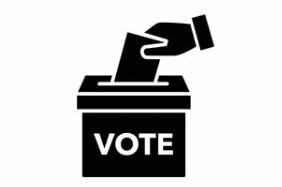As South Sudan prepares for elections slated to be held in December 2024, there is anxiety about whether the country is prepared for such an important democratic milestone.
The country has not conducted a census that is crucial to determining the constituencies and representation in the national parliament and locally. There are still pending issues from the implementation of the 2018 revitalized peace agreement.
While these issues are important, South Sudanese should not lose sight of the fact that they will have an opportunity to elect their leaders.
Elections create dynamism in the way the country is governed. Citizens are empowered to choose leaders whose policy positions are aligned with their self-interests and hold them accountable should they fail to deliver on their promises. Therefore, we should strive to hold elections regularly even if such elections do not meet the gold standard of elections set in Scandinavian countries.
While South Sudan faces some challenges, it is irresponsible to cast upcoming elections in a negative light. There is widespread negativity when discussing the upcoming elections. Political leaders in South Sudan and their sponsors in the West argue that the outcome of upcoming the elections will not be credible. This portrayal is planting the seeds for opposition groups to reject the results and opening the door for violence. Violence is the last thing our people need.
Unfortunately, South Sudanese are being primed to view election results as a sham. The narrative being formed around a successful electoral process is that the environment is not conducive for such a process and therefore the results should not be considered credible. An often-raised argument is that the coalition government running South Sudan is limiting space for opposition parties to participate fairly. However, this is creating a self-confirmation bias. For example, opposition parties could argue that they did not win because they faced obstacles to freely campaign and spread their message to the masses.
Predictably, some opposition groups, including the main SPLM-IO, have come out as opposed to elections being held in December 2024 due to incomplete implementation of the peace agreement. The implementation is a two-way process, and it takes two to tango. It cannot be blamed on one partner in the agreement. It is therefore incumbent upon the main partners to the agreement to first sensitize South Sudanese to the need to maintain peace above all else and continue working behind closed doors to implement critical parts of the agreement and postpone others that cannot be fully implemented due to resource constraints.
Despite the challenges and time constraints, going forward with elections will provide a good barometer for how South Sudanese feel about the situation and whether a change is necessary. It would be a good idea to also have separate elections for the lower House of Representatives who are closer to the electorate so that they can bring issues affecting their constituencies to the parliament. For example, America’s members of the House of Representatives are elected every two years, and they then elect the parliamentary leadership (Speaker) that represents a third branch of the government — with the Executive branch (President) and Judicial branch (Chief Justice) comprising the other two branches. This would create a more dynamic process where leaders are kept on their toes and more responsive to people’s needs and increase awareness among the populace that power rests with people.
Another critical consideration is integrity in elections. This is what is being attacked by the opposition and their sponsors outside the country. Election integrity is very important as it gives confidence to the people that their votes mean something. For example, in the 2020 U.S. presidential election, Donald Trump cast the presidential election as having been stolen. To this day, he has not conceded he lost. His supporters briefly tried to stop the results from being certified by invading Congress (parliament). If such events had occurred in a country like South Sudan where the judicial process is less developed, people would have simply resorted to armed rebellion, and this would have had catastrophic consequences for the country and a giant step backward.
Fortunately, Mr. Trump had the avenues to challenge results through the court system and lost and Joe Biden’s win was upheld. Another consideration in election integrity is how candidates get resources to finance their campaigns. Elections are expensive. A candidate can rely on donations from supporters, their resources, or other murky sources of funding. South Sudanese should have confidence that their elected leaders are not being financed by outsiders whose self-interests may not be aligned with their own. It is therefore important for candidates to reveal to the electoral bodies how they are being financed and file complete disclosure with electoral bodies.
South Sudanese deserve to get a taste of what it means to have a say in who governs their country. It lets them salvage something and learn from the experience rather than throw away a baby with bath water. It is also irresponsible to preordain election outcomes as not credible just because the potential results are SPLM-IG winning. This is an outcome that is antithetical to the West’s designs for the country and that is why the results are being attacked before even a single vote has been cast.
This also creates a situation where South Sudanese could be put through another painful war just because outsiders’ self-interest is not aligned with electoral outcomes. Let us give South Sudanese a chance to vote and we may be surprised. We will fix other issues pending in the implementation of the peace agreement once we elect responsive leaders to lead us.
Jack Werkok is a South Sudanese and can be reached at jwerkok@gmail.com
The views expressed in ‘opinion’ articles published by Radio Tamazuj are solely those of the writer. The veracity of any claims made is the responsibility of the author, not Radio Tamazuj.




